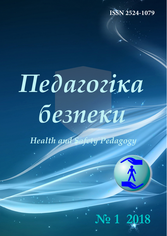Элементы проблемного обучения теории предельных состояний в задачах сопротивления материалов
DOI:
https://doi.org/10.31649/2524-1079-2018-3-1-009-020Ключові слова:
теория предельных состояний, принципы проблемного обучения, профессиональная подготовка инженера-механика, критерии прочностиАнотація
Проанализированы содержание и порядок изложения теоретического материала раздела «Теории предельных состояний» с опорой на методические приёмы проблемного обучения. При рассмотрении этапов создания проблемной ситуации сформулирована проблема уровня отдельного раздела курса «Сопротивления материалов». Раскрыты особенности исторического развития понятия «предельное состояние» дисциплин «Сопротивление материалов», «Механика материалов и конструкций». Описана структура лекции, сформулированы проблемных ситуации, получены решения проблем развития основных понятий. Подчеркнута необходимость учёта требований практики, оказывающих влияние на дальнейшее развитие теории предельных состояний.
СПИСОК ПОСИЛАНЬ
Колмогоров, В. Л. (1970). Напряжения. Деформации. Разрушение. Москва: Металлургия.
Огородников, В. А. (1977). Оценка деформируемости металлов при обработке давлением. Кузнечно-штамповочное производство, 3, 15-18.
Смирнов-Аляев, Г. А. (1968). Механические основы пластической обработки металлов. Ленинград: Машиностроение.
Сторожев, М. В., & Попов, Е. А. (1971). Теория обработки металлов давлением. Москва: Машиностроение.
Феодосьев, В. И. (2010). Сопротивление материалов. Москва: МГТУ им. Баумана.
Dell, Y., Gese, H., Kessler, L., Werner, H., & Hooputra, H. (2001). Continuous Failure Prediction Model for Nonlinear Load Paths in Successive Stamping and Crash Processes. World Congress, Detroit, Michigan, March 5-8, 2001. New Sheet Steel Products ans Sheet Metal Stamping. SAE Proceeding SP-1614, paper 2001-01-1131, 113-122.
##submission.downloads##
-
PDF (Русский)
Завантажень: 326


